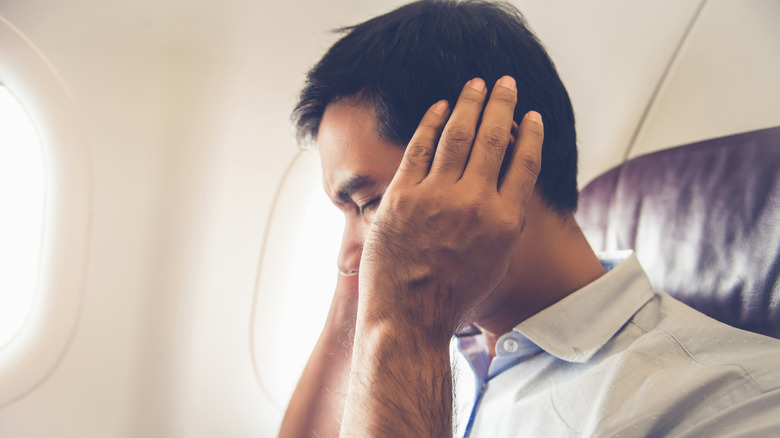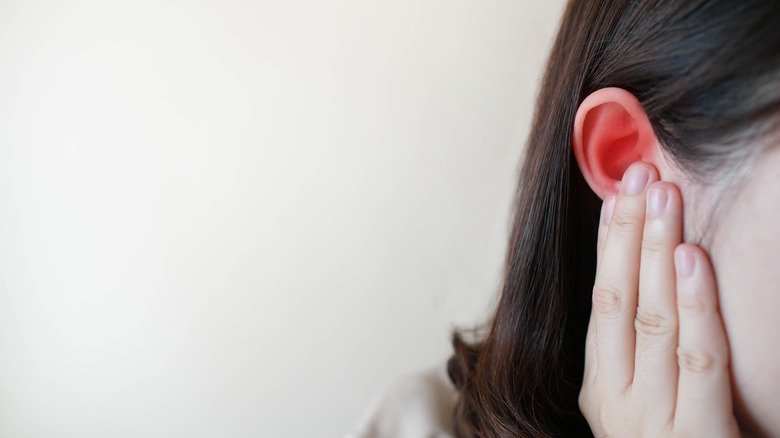The Real Reason Your Ears Pop On A Plane
There are a few things you can count on experiencing when you fly. Feeling rushed, getting jostled while going through airport security, and your ears popping as soon as the plane takes off or lands. Many of these are outside of our control — they're just hard facts people have to face when they travel by plane.
But the crackle in our ears confuses many people. Why do our ears make that sound? And why is it so often accompanied by a general sense of hearing loss and, for many, a faint sense of being lightheaded? Most importantly, is there something you can do about it?
According to Condé Nast Traveler, there are several ways you can clear that crackling in your ears and force them to 'pop,' often fixing the hearing issue and lightheaded feeling in the process. You can yawn, bounce your jaw, swallow, or chew gum. However, these methods may not work if you are sick with a cold or are suffering from allergies. From the crackle to the hearing issues, it all relates to air pressure.
How air pressure affects our inner ears
The Children's Museum of Indianapolis explains that the human ear contains a pocket of air. When on the ground, that pocket feels the same level of pressure that we feel in the air around us. When we change elevation quickly — such as driving up or down a mountain or traveling by plane — the air pressure outside no longer matches the air pressure inside our ears. It is especially noticeable when we fly because planes reach altitudes where the air is much less dense. Because our eardrums are under more pressure from inside our own air pockets, they press outward, resulting in a crackling noise and muffled hearing.
This condition actually has a name, according to the Mayo Clinic. It's most often referred to as 'airplane ear,' though more severe cases may be labeled as barotrauma, meaning trauma caused by barometric pressure. And just as pressure causes the condition, relieving that pressure can cure it. The Children's Museum goes on to explain that our inner ears are connected to our throats by the eustachian tubes. Opening our mouths to yawn or chew allows inner ear air to escape and alleviate pressure. Swallowing also helps as the movement of the throat muscles does the same thing, bringing sweet relief from that inner ear static the next time you fly.


